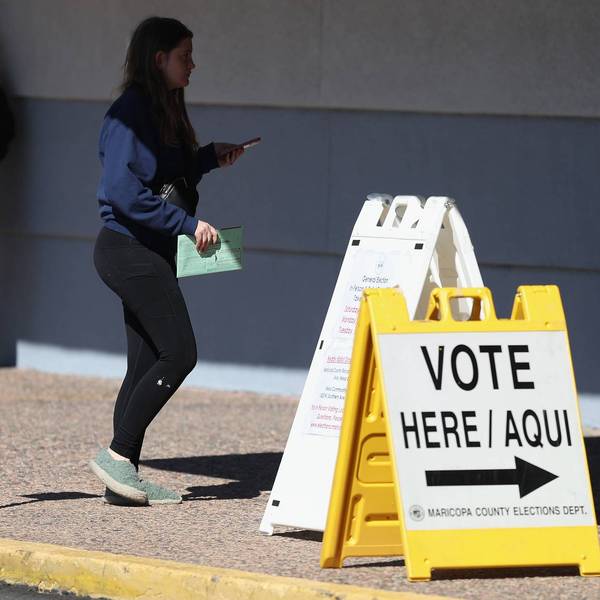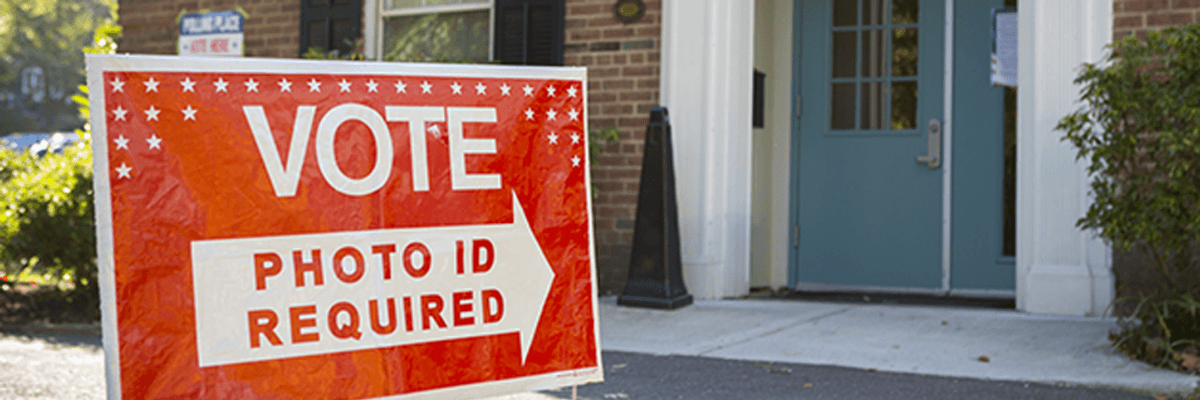In North Dakota, a hotly contested U.S. Senate race could determine which party controls the chamber. But the rules that will now be in place are likely to disenfranchise Native American voters.
For years, the North Dakota Legislature has tried to implement a burdensome voter ID law. While proponents claim that these types of laws help to prevent in-person voter fraud, numerous studies have documented that this type of fraud rarely occurs. At the same time, they create very real burdens on legitimate voters. Voter ID laws disenfranchise the many Americans who do not possess the required ID, and the burden falls disproportionately on communities that are already the most marginalized. In North Dakota, that means its large Native American population.
In 2013, the North Dakota Legislature enacted a voter ID law that required voters to present one of a short list of IDs at the polls in order to vote and got rid of any fail-safe options for people who didn't possess the requisite ID. The Native American Rights Fund (NARF) represented seven Native American voters in a challenge to the law in federal court. NARF made clear that the law would disproportionately impact Native American voters and also documented the long history of discrimination against Native Americans in North Dakota--in voting, but also in other areas like education, loss of Native American land, and government lending.
The voters won. The court recognized that, without any fail-safe for voters without ID, the law could disenfranchise thousands of Native American voters. Therefore, it blocked the state from implementing the law without a fail-safe.
That should have been the end of the story, but the North Dakota Legislature wasn't finished. When the Legislature returned to session in 2017, it tried again, enacting a similar ID law to the one that was previously blocked.
The same voters, still represented by NARF, challenged the law, and the district court again directed the state to expand the options available to voters. Among other things, the court blocked the state from requiring ID to have a residential street address, as opposed to a current mailing address, because Native American communities often don't have street addresses. The modifications ordered by the district court were in place for the 2018 primary election.
The state appealed part of the district court's order. And in September the Eighth Circuit Court of Appeals put an emergency halt to part of the order--in particular, the court of appeals permitted the state to proceed with requiring residential street addresses on IDs, despite the potential effect on Native American voters. The plaintiffs asked the Supreme Court to overturn the court of appeals and to return to the rules that were in place for the primaries. But on Oct. 9--less than a month before the election--a majority of the Supreme Court denied that request. Justice Ruth Bader Ginsburg dissented, pointing out that the last-minute rule change was likely to cause significant confusion to voters.
The upshot of all this back and forth is that new, more burdensome voting rules will be put in place at the last minute in North Dakota's election. This outcome is doubly bad: The new obstacles to voting imposed by the law are likely to disenfranchise voters, and the confusion around their implementation may disenfranchise even more voters. Furthermore, the law's effects will fall most heavily on Native American communities that have historically seen their voices marginalized.
For now, the state must make an urgent and good-faith effort to educate voters about the rules that will be in place, and it must carefully train poll workers to apply those rules. More generally, Americans must demand elections that are free, fair, and open to all eligible voters.




